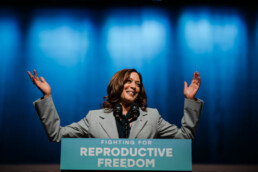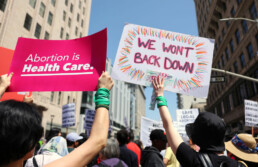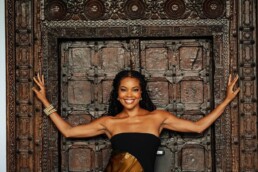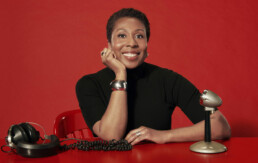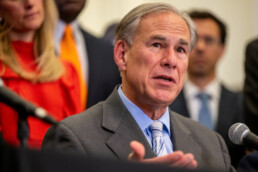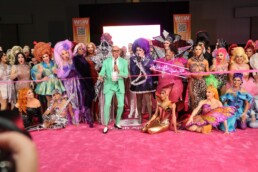A "Tidal Wave" of Southern Abortion Seekers
|
Wonderful Meteor readers, Would it shock you to learn that Florida—land of Mickey Mouse and Ron DeSantis's war on everyone who isn't white or wealthy—has also become an unlikely abortion destination for pregnant people in the Deep South? It certainly shocked me. In today's newsletter, journalist Stassa Edwards writes about the women behind the abortion funds that have been aiding a “tidal wave” of patients who have been deeply affected by trigger-ban laws. On a more personal note, if you or someone you know is living in a trigger-ban state and needs an abortion I urge you to reach out to your local abortion fund. As you'll read in the following report, abortion funds can help you or your loved one find safe travel, accommodation, and access to proper medical care no matter where it may be. These resources can save a life. With love, Shannon Melero  A YEAR WITHOUT ROEThe Women on The Frontlines of Abortion Care in the Deep SouthWith Florida’s six-week abortion ban looming, advocates stay steadfast in their commitment to providing care. BY STASSA EDWARDS  A WOMEN'S HEALTHCARE CLINIC IN NORTH MIAMI BEACH. (PHOTO BY JOSH RITCHIE VIA GETTY IMAGES) When the Dobbs v. Jackson decision dropped one year ago tomorrow, it had immediate impact on the lives of millions of people—particularly those in the South, where trigger laws swiftly went into effect in Kentucky and Louisiana, then Texas, Alabama, and Mississippi, abortion is now banned with few exceptions. And with that, patients found themselves turning to an unlikely place: Florida. In comparison to its Deep South counterparts, Florida currently has fewer hurdles to accessing care. As of publication, the state prohibits abortion after 15 weeks, a law that Governor Ron DeSantis signed in 2022; it also requires a 24-hour waiting period, thanks to a law that went into effect in 2022 after a seven year legal battle, as well as a parental notification and consent law for minors. But despite those restrictions, abortion numbers in Florida have increased over the last year. Jessica Wannemacher, the health center manager at Jacksonville Planned Parenthood of South, East, and North Florida, said that her clinic has seen an increase in patients traveling from Georgia; she calls them “fearful” and “desperate.” But her ability to welcome those patients may soon change. In April 2023, in an effort to double down on his anti-choice bonafides ahead of a presidential run, DeSantis signed a six-week ban into law. That ban is still working its way through the courts, but Florida's conservative Supreme Court is expected to uphold it. And that would be disastrous for residents in the Deep South.  THE FLORIDIAN RESPONSE TO DESANTIS'S PRESIDENTIAL RUN. (PHOTO BY JASON KOERNER VIA GETTY IMAGES) Ever since Dobbs, providers and funds in Florida have been serving what Wannemacher calls a “tidal wave” of abortion seekers from across the South. “Our numbers doubled and tripled,” she adds. Planned Parenthood of South, East and North Florida health centers saw their patient numbers quadruple. That follows the national trend: Planned Parenthood centers in states where abortion is still accessible have seen a nearly 700% increase in out-of-state patients. The influx of abortion seekers into a state already underserved has put an immense amount of financial pressure on abortion funds, which provide things like childcare, legal services, hotels, and transportation to a rapidly increasing number of patients. “What we do has not changed, but the intensity and volume has changed,” says McKenna Kelly, a board member at the Tampa Bay Abortion Fund. The Tampa Bay Abortion Fund has already provided money to 1,300 people in 2023; in comparison: the fund aided 1,100 people in all of 2022. “We went from having no one coming into [Tampa Bay] to a few dozen a month,” Kelly said. Immediately after the Dobbs decision, Kelly says the fund saw an increase in donations, including a portion of the $2 million raised by activist Olivia Julianna’s followers which allowed them to support the growing need. And while the fund has seen “bumps here and there,” especially after major news events, donations have steadily tapered off in the year after Dobbs, even as the need has increased. Jessica Hatem of the Emergency Medical Assistant Abortion Fund (EMA) in Palm Beach County echoes Kelly. EMA has also seen demand and costs increase, and there is “definitely desperation,” Hatem says of the people who reach out. “In the beginning there was a lot of shock,” she says. “If we weren’t here to fill these gaps, it would be so much harder for these individuals.” Florida abortion funds like Tampa Bay and EMA have been working hard to get patients from out of state in—but they’ve also been working to get pregnant people who are past the 15-week mark out of Florida. And on that front, they’ve seen their options narrowing as more and more states pass increasingly punitive restrictions. Hatem said that EMA had been sending patients to North Carolina, but in May, that state’s Republican assembly overrode the governor’s veto and banned abortions after 12 weeks of pregnancy. (The law will go into effect July 1, 2023.) Even before that new legislation, North Carolina clinics had wait times of up to 10 days, so EMA had been sending patients to Washington, DC, New York, and Baltimore, where hotel rooms are significantly more expensive. (Hatem points out that she always books non-stop flights because many of the people EMA helps have never been on an airplane.) “The six-week ban will be devastating,” Kelly says. At EMA, Hatem says, the fund will begin to prioritize Floridians who need to leave the state and no longer be able to aid out-of-state abortion seekers. “We will still be helping people leave the state,” she says. And “that’s going to be a huge amount of people.” Despite the barriers, though, the women who spoke to The Meteor are hopeful and resilient, even in an increasingly hostile political environment. They plan to build bridges with providers and funds in other states; Planned Parenthood is quickly working to expand its patient navigation program, which helps coordinate care, including financial assistance. Hatem and Kelly said that they are both working with other funds and independent clinics in states where abortion is protected. And they plan to keep showing “true solidarity,” Hatem says. Her group, EMA, has a legacy of that: It was founded by Harriette Glasner, a Palm Beach resident who, as a young woman in the 1950s, survived an illegal abortion without anesthetic. The experience turned her into a crusader of sorts and she became a one-woman abortion fund, buying plane tickets for Florida abortion seekers long before Roe went into effect. “We are going to come out of this one way or the other,” Hatem says. “This is not where we’re landing. That’s what keeps me hopeful.” Stassa Edwards is a writer and editor. Her bylines have appeared in Jezebel, Slate, Self, Aeon, and Lapham’s Quarterly.  FOLLOW THE METEOR Thank you for reading The Meteor! Got this from a friend? Sign up for your own copy, sent Tuesdays and Thursdays.
|
![]()
Brittany Packnett Cunningham Talks to Vice President Kamala Harris After a Year Without Roe
|
Good morning, friends! Coming to you with something big today, so let’s get straight to it. Kamala Harris’s vice presidency was always going to be historic—she is, of course, this country’s first Black, first AAPI, and first female vice president. But a year ago this week, when the Supreme Court overturned Roe v. Wade, the administration she represents was also faced with history of a different kind: millions of its citizens stripped of their bodily freedom after an unprecedented Supreme Court decision. How has she responded? What does she plan to do next? And, in the words of podcast host Brittany Packnett Cunningham, “Are you mad? Because I'm mad, so I know you gotta be mad!” To find out, Brittany sat down with the Vice President last week. Their conversation comes to you today as a special episode of UNDISTRACTED (listen here); in it, they talk about everything from the urgency of this moment to the advice Shyamala Gopalan Harris would have for her daughter now. Here, Brittany tells us all about their sit-down. 
First things first—why did you want to talk to the Vice President for this particular anniversary? Brittany Packnett Cunningham: We’ve been intentional at UNDISTRACTED to speak to people from all angles on this issue—people who’ve had abortions, organizers, folks who defend the clinics…I wanted to talk to a person who has more power than most to do something about this. And to have a woman in the VP role—I thought it was especially important to hear from her. I’ve known the VP for a long time…when she was in the Senate, she would call to hear my POV on issues of policing, of race, of gender…I’ve been very candid with her. What I heard in our conversation in the podcast is similar to what I’ve heard in private conversations with her: a lot of justified concern, and frustration, and a very clear fight. Yeah, there’s a moment when you say to her, I feel like I’m seeing that Senate Judiciary Committee fire from you. You’re talking about the questions she asked in the Brett Kavanaugh confirmation hearings. Why was that on your mind? I remember her bringing such a real clear-eyed drive to get at the truth in those hearings. That energy is what people saw from her even before she became the VP nominee, and it’s something that even people who don’t agree with her politically appreciate about her. I wanted to see how she was bringing that fire to this fight. Of course, everybody does not like the way fight and fire look on Black and Asian women—and the stereotype that goes along with that, especially for Black women, can be undermining to the work that she’s trying to do and the people she has to persuade to do it. She spoke to having to navigate that, and it was revealing to see behind the curtain a bit. There’s a science to it that she’s had to figure out that no one else has had to in that job. So how do you measure up what the administration is actually doing on abortion? The Vice President was pretty honest that the Women’s Health Protection Act is not going to pass this session. Listen, especially knowing the history that Joe Biden has of wanting to work in a bipartisan manner, I’m realistic about how far he is willing to go. But on a number of issues the filibuster is going to continue to be a thorn in the side of the American people, and there is no way forward unless we get rid of it. I don’t get the sense that [President] Biden is willing to upset his Republican colleagues in order to do that—even though they would not give him the same consideration. So, while we work long-term to get a filibuster-proof congressional majority, we still have to push him on the filibuster and court reform. What else would you like to see the administration doing on this issue, especially as we head into 2024? They should be following the Vice President’s and organizers’ lead in being unafraid to say the word abortion—and to destigmatize this medical procedure. The administration should be getting behind candidates up and down the ballot who are pro-bodily autonomy. And they need to be pushed to be unafraid to explore all options, including expanding the Supreme Court. Speaking of 2024: Republicans are already coming at Harris hard with racism and misogyny. How can we all counter that? We need to not fall for the bait. The bait is going to be the perpetuation of culture wars, including banning abortion and banning gender-affirming medical care, and banning Black history. And the bait is also going to be a messaging strategy that tries to convince us that that’s not happening. We’re gonna continue to be gaslit. It’s going to be up to candidates who want to stand on the right side of history and who, as my mother would say, won’t fall for the okeydoke. And it’s going to be up to voters to remain on fire. The challenge is that Republicans have dispersed [the abortion] fight, so it’s happening locally and at state levels and it’s easy to get distracted and forget how important this is, this year and next year. Listen to the interview with Vice President Kamala Harris now.  THIS EPISODE OF UNDISTRACTED IS SPONSORED BY: Hey Jane is health care, on your own terms. As the most-trusted virtual clinic offering telemedicine abortion care, we’re proudly putting the power back in people’s hands by providing care that’s private, safe, supportive, accessible, and convenient—for less than the average in-clinic cost of a medication abortion. Learn more about our services here, and how you can support Hey Jane here.  FOLLOW THE METEOR Thank you for reading The Meteor! Got this from a friend?
|
![]()
A Year of Abortion, Every Day
|
Dear Meteor readers, When I think about culture-shifting moments of the past, I always wonder if the people living through them actually knew how profound the change was. In the case of June 24, 2022, I think many of us did know. That morning, when the United States Supreme Court published its decision in the case of Dobbs v. Jackson Women’s Health Organization and in a single day undid five decades’ worth of hard earned abortion rights, I heard the news from my husband in the simplest of sentences, “They did it.” This week we’re suspending our regular programming to take a step back and reflect on what has happened in the year since they did it. Leading up to the one year anti-versary on Saturday, we’ll be bringing you daily stories from the front lines, and the reality of what birthing people have been forced to endure in A Year Without Roe. Today, we hear from a journalist who’s covered all of it; tomorrow, one of the most powerful leaders in the world reflects on what’s next. And we’ll also be thinking about the future and the possibility of making history once again in the fight to win back our reproductive freedom. To paraphrase The Beatles, there’s nothing they can do that can’t be undone. Taking it one day at a time, Shannon Melero  REPORTER'S NOTEBOOKA Year of Abortion, Every DayJournalist Jessica Valenti has published over 300 abortion stories since Roe v. Wade fell last year. Here’s what she’s learned. BY SAMHITA MUKHOPADHYAY  Jessica Valenti has been doing feminist work for over two decades. She was one of the founding editors of the blog Feministing and has written or edited seven books on feminism, sexual consent, and more. But this year, she has been relentlessly focused on one topic: abortion. Her daily newsletter, Abortion, Every Day, has become an essential resource for anyone who cares about the issue, and the title doesn’t lie: She has taken only one day off since she began publishing last summer. I wanted to talk to my friend about what she's learned—but first, we had to reminisce. Samhita Mukhopadhyay: We've known each other for a long time—25 years! I remember the first thing we worked on together was the Vagina Monologues in college. You were making T-shirts. Jessica Valenti: That's right! That's right! The bedazzled clitoris. …that we wore to watch the Vagina Monologues, and then probably also to Take Back the Night. Oh my God. True nineties. Well, I share this to establish a little context here. You've been doing feminist work for a long time. It's your way of calling me old. I understand. Well, if you're old, I'm old too. Do you consider yourself a feminist journalist or an activist? Both—but if I had to choose one, I would choose activism, especially now. For me, feminism and journalism [are] natural allies because of the way that journalism is supposed to be about making things accessible to people, telling the truth, and holding powerful institutions and people accountable. 
Like most feminists, I have felt like this for at least the last 10 to 15 years because even with Roe existing, the attacks were ongoing, and restrictions were being implemented. Abortion has not been available in many parts of the country for a very, very long time. But, obviously, now that it's nationwide that folks have lost the right, there's a different kind of attention being paid, rightfully so. And it's always been really frustrating. I'm sure you feel this way, too, when you're like, "Hey, look at this thing. Look at this thing. Look at this thing!" And to you, it's this very clear picture, and you're pointing it out over and over again, and you're constantly being patted on the head and told not to worry. We were told we were delusional. So take us back to a year ago. Where were you when the Dobbs decision came down? That day is almost blocked [for me] because my moment was after the decision was leaked [in May 2022]. I was sobbing. And I just kept saying, “My daughter.” I just kept thinking about her. It hit me in the pit of my stomach. By the time the decision was actually released [on June 24, 2022], I was far gone. I had switched from denial to anger. How have things changed for you in the last year? I just naturally started writing about abortion all the time. I just couldn't stop tracking things, and researching things, and looking at things. It made me feel more in control of a generally uncontrollable situation. What’s your goal with Abortion, Every Day? We're trying to put out comprehensive reports that track everything but also provide a throughline of information because one of the biggest strategies for the anti-abortion movement is to make us feel completely inundated and overwhelmed into inaction. And so the hope is that if people understand what is happening, they'll feel like they're informed and empowered to do whatever they have to do. Have you learned anything new from just being in the weeds this much in the last year? I have learned that the anti-choice movement actually gives away the game constantly. They are laying [out] what they're going to do, in all sorts of ways, if you know where to look and how to listen. They are so much more ignorant than people realize. And they say the wildest stuff and put their strategy out there in this very explicit way. It's just that it's not being seen, and it's not being reported on. You’ve broken a lot of stories. What’s been the most shocking thing you've reported so far? It's all shocking. It's all awful. I published something last week about a young woman in Texas who couldn't get an abortion even though her fetus had no head. And in Texas, they are manufacturing abortion complication data. Everything that they're doing is shocking. What is it actually going to take to get these stories to penetrate the mainstream in some way? I think we're going to be at a point soon where you're not going to find a single person in America who hasn't been touched by an abortion restriction or an abortion ban in some way. Whether it's themselves, a family member, or a member of their community, it is not going to take long for this to impact everyone. And I think part of what we need to do, and what Democrats need to do, and the mainstream media needs to do, is to start treating the issue for what it is—which is a winning issue. It's something that Americans are not split on, not polarized about. Americans overwhelmingly support abortion rights, and it's just a small group of extremist legislators who are imposing their will on the majority of voters. And the more that we talk about that, the better off we're going to be. It sounds like you're hopeful. I am hopeful in the long run, but that doesn't take away from the everyday suffering that's happening. That's the hard bit. It's like, yeah, we probably will win this, eventually. But in the meantime, a lot of people are going to be hurt. 
Samhita Mukhopadhyay is a writer, editor, and speaker. She is the former Executive Editor of Teen Vogue and is the co-editor of Nasty Women: Feminism, Resistance and Revolution in Trump's America and the author of Outdated: Why Dating is Ruining Your Love Life, and the forthcoming book, The Myth of Making It. (Photo by Heather Hazan)  THIS TIME LAST YEARA year ago today, Renee Bracey Sherman spoke with Samhita on what people could do after SCOTUS ruled on Roe. Her prediction: “It’s going to be fucking chaos.” She was right.  FOLLOW THE METEOR Thank you for reading The Meteor! Got this from a friend? Sign up for your own copy, sent Tuesdays and Thursdays.
|
![]()
Gabrielle Union on Trauma, Healing, and Her “50/50” partnership
By Rebecca Carroll
Let me tell you what Black folks are going to do: survive. And no one knows that better than actress Gabrielle Union, who has spoken very openly about the 30-year battle with PTSD she’s experienced since being raped at gunpoint when she was 19. Union’s trauma came to a head last year while filming the true crime series “Truth Be Told"—and on the eve of her 50th birthday, she decided it was time to lean in to her family and friends for a life-changing, revitalizing experience. That experience became “Gabrielle Union: My Journey to 50,” a two-part BET+ series that follows Union and her family, including her 4-year-old daughter, Kaavia, across four different African countries—a profoundly intimate narrative of discovery that I had the joy of discussing with my friend, Gabrielle Union.
Rebecca Carroll: You experienced a breaking point while you were filming “Truth Be Told”—it re-triggered your trauma. How did that happen?
Gabrielle Union: We were filming a story about the sexual brutality of Black and brown teenage girls in the Bay Area—I don’t think it's a spoiler alert at this point—and the courthouse where my character is shot is the same courthouse I testified in for the grand jury [for my rape]. And it was like every episode broke something in me, and revealed shit. Everything became crystal clear over the five months of filming, and by the time [my character] dies, I died. I was not myself. I was not well by any stretch of the imagination…When you are empty, trauma takes hold, it takes root, and that becomes the center. It becomes your nucleus.
I’m not a crier, but every day I would walk in—it still makes me emotional now—I would walk into my husband’s side of our room, and he would just be there with his hands out, and I would just sob for 19-year old me, and what I had actually survived. And even when I would tell the story [over the years since], it was telling it from a place of disassociation. I was completely separate from it.
Are you able to give yourself the grace for that disassociation?
Yes. It was necessary to make it. You know what I mean? No hyperbole, no cap. I would not have made it. It's too much. It was breaking me at 49. I can't imagine at 19.
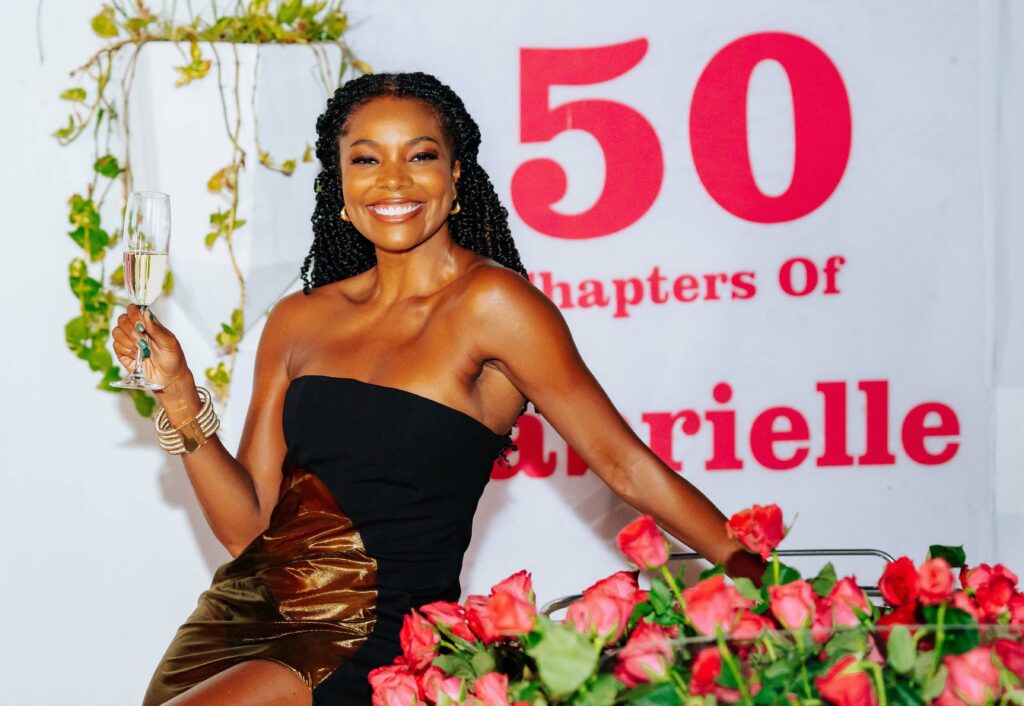
In your new BET+ series, there is this palpable sense of rebirth, liberation, and renewal. But because I know you, I know that this is not the first time you have experienced these feelings—how does this particular milestone feel different, and what made you want to capture it on film?
I was so depleted emotionally, and by the time I was getting on the plane [to Africa], I was just dust. I didn’t even have large enough pieces [of myself] to fake it at that point. But I knew I would get my bearings the second we landed, because that has always been true to me. I had been there before, but I used to have no idea what to expect. Each country was new. But as the trips started stacking up, I was like, “Boy, every time I set foot on the continent, my shoulders unclench, I feel seen and acknowledged as a whole person, and I can get back to myself.” It’s different being somewhere where you are acknowledged as a human being, and not necessarily extraordinary or deficient. It’s nice not having to feel like you always have to flex. I could just exist as one of millions who look like me, and it allowed me the time and the space and the grace to look even further to what I didn't even know existed.

At one particularly emotional point in the series, Dwyane [Wade, Union’s husband] is talking about how you are evolving together in real time, which made me think a little bit differently about this silly dust-up a few weeks back, when you shared in an interview that you two split the household bills 50/50. People on social media couldn’t believe that you were paying half when your husband is an NBA star with a multi-million-dollar net worth. But what I saw in this series is that you two truly are 50/50—not just financially, but in all ways.
Yeah. That’s my potna and my partner.
I know that’s right. The other thing, though, is the scarcity mindset that I think a lot of Black folks experience—if you don’t come up with money or financial security, the anxiety of not having it never goes away, no matter how much you make as an adult.
We come from a people where it’s like, you are your brother's keeper. You are everybody’s keeper. And if you have it, then we have it. And I subscribe to it. I am an active participant in that. I have three separate households that I’m a hundred percent responsible for. D has even more. There is exactly one person in each of our lives who has ever met the other halfway, and that is each other.
That is amazingly powerful.
And the most loving, joyous thing! I like working, I like contributing. I like going half on a dream home, because it's our dream. I like going half on our baby, because that was our dream. I'm not chasing him around for 50 cents if he buys some Doritos. It's not like that. I certainly used all his points and miles to pay for this Africa trip, I will gleefully say that. But knowing what it feels like to be met halfway, and how good and reassuring and how protective that feels—it’s also a lot easier to go into a 50/50 situation knowing somebody can easily pay for a hundred percent.
And he knows that as well. Now, is my money long? No, but can I hold us down. Are we losing this house or are our kids going to be pulled out of private school? No, I got it. Because that’s how I’ve lived my life. I have it. I will have it. I'll find it, and we'll be okay. So it's easier to get into a 50/50 situation knowing that if push comes to shove, nobody's totally fucked. If it's different in your house? You like it, I love it. I'm not saying that this is what's great for everyone. But I'm definitely not stupid or deficient because I like to pay for half of my life and the children that I have created.
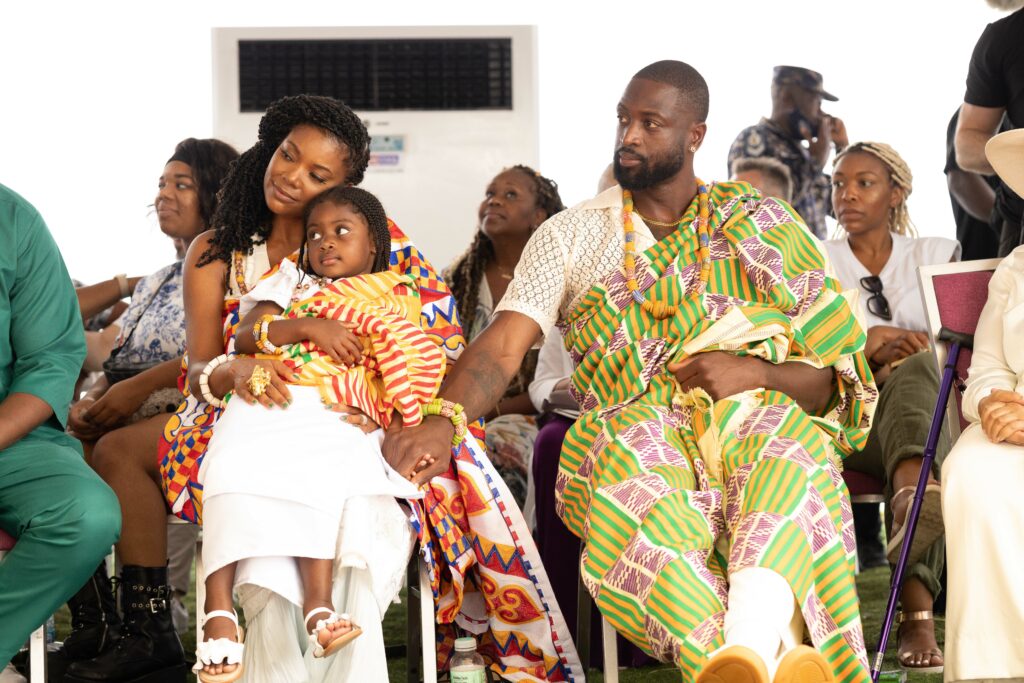
Speaking of family—you’ve always emphasized family and friends, many of whom joined you on this journey to Africa. Why is that so important to you?
I come from both sides of big families. And my family don't play about each other. We just don't. We call ourselves the dozens of cousins for a reason. If I need to fight, say the word. Nothing brought [my parents] more joy than delivering for their family. And I grew up seeing that. Nothing makes me happier than providing for my family and my community, and I wouldn't have been able to say that 20 years ago.
Even though you were gaining enough financial stability of your own to help them?
Even though I was giving financially, I didn't feel worthy of the position. I felt like I was unseen and unloved in my industry. And it took me probably until 40 to really revel in it, and to be outspoken about this joy and how hard fought it was, because before that I still [thought], “If the God of white supremacy and the white gaze don't see me, then nobody can.”
[But] nobody ever let me fall—not in my industry family, not in my personal family. I tell the story about Regina King literally saving me from the riptide. That's true as fuck. I talk about Tisha Campbell paying for therapy—I’m still seeing [that therapist] to this day, 25 years later. I've just been very lucky that people were not interested in watching me fail. And I'm not interested in watching me fail. And now I feel worthy.
When you were in Ghana, you visited the Last Bath river, where enslaved people were bathed before being loaded onto slave ships for America. It was intense; tell me about it.
As I said [in the series] when I came out of that river, “Oh, this is my superhero origin story.” Right. Holy shit, I am unstoppable. And I fucking believe. Holy fuck. Oh, it's on. It is on like Donkey Kong, and I can't fucking wait. I wish a motherfucker would, because I'm ready.
You said earlier that all of this started because you had arrived at a place of feeling depleted—how do you feel now?
Whole. There’s still some cavernous spaces that can be filled, but I want to try to leave myself open to what's to come and what I don't know—which is a lot. We know as African-Americans what happened on the other side of the Middle Passage, but we are less secure in our knowledge of who was left behind and what our collective mass absence did for generations. It left a gaping, festering wound all across the diaspora. And we just aren’t as familiar with that.
It's always amazing to talk to you, Gab.
I live for our talks, and I thank you, because I needed something different today. I've been doing [interviews] all day, but this is the first real one, so I appreciate you.
Right back at you.
Black Mothers Are Still Dying
 June 13, 2023 Felicitations, beloved Meteor readers, I’m not exactly what you would call a patriot. As a Nuyorican, I have a fraught relationship with the mainland because of America’s continued colonization of Puerto Rico and her refusal to do literally anything helpful for the island (which, by the way, is suffering from a power grid-destroying heat wave right now). However, I push my disdain to the back closet of my mind during two important times: Olympics season and World Cup season. As soon as those Team USA kits drop, I am singin’ the chorus to “God Bless the USA” like I’m at a karaoke bar. And how can I not when this is the opening ad for this year’s Women’s Cup: As devoted readers, I assume you will be watching each and every game because, as I’ve told you time and again, investing in women’s sports also means investing your time! In today’s newsletter I explain all the ways in which Team Great Britain will fail to overcome their—kidding, kidding. We’ve got a book debate, power lesbians, and the latest ripple effect of abortion bans for you today. Let’s go(aaaaalllllll), Shannon Melero  WHAT'S GOING ONRedacted: Writer Elizabeth Gilbert (of Eat, Pray, Love fame) kicked up an important literary discussion this week when she announced that she was pulling her new novel from publication after an “enormous” negative response from Ukrainian readers. The story, set in 1980s Russia, followed a reclusive fundamentalist family living off the grid in Siberia for 40 years until they’re discovered by a Soviet geologist. More stuff happens after that, but we’ll never know since Gilbert will not be releasing the book and is refunding all pre-orders. Ukrainian critics, The Guardian reported, charged that Gilbert was romanticizing Russia and Russian people amidst the ongoing war, despite this fictional period piece being set several decades before Russia invaded Ukraine. Is the removal of this book from publication censorship, or is it appropriate given Russia’s current brutality? However you view the book’s removal, folks are being reminded that there is still, in fact, a war going on, despite it having dropped off the front page of American newspapers. And that is what’s most important: There are real people, not book characters, struggling to find housing, food, and power. To help those people out, consider donating to the World Food Program, Doctors Without Borders, or UNHCR. The publishing industry will survive all on its own. AND:
IMAGE VIA INSTAGRAM
 FOLLOW THE METEOR Thank you for reading The Meteor! Got this from a friend?
|
![]()
An Interview with America's Interviewer
 June 8, 2023 Hey, Meteor readers, Is it hot in here or am I just nervously overheating as I watch the air quality indicator on my weather app get progressively worse? Probably both. Smoke from Canadian wildfires continues to fill the skies on our eastern coast, and while some folks are meme-ing their way through it, more than 10,000 Quebec citizens have been displaced because of an “unprecedented” wildfire season. The Canadian Red Cross has set up a fund to help those affected by the fires, which you can donate to here. In today’s newsletter, The Meteor’s Rebecca Carroll talks to CNN’s Audie Cornish about her new podcast, “The Assignment,” which sees the renowned reporter dissecting the day’s biggest news stories by speaking to the people it affects. If you want more Audie in your life (and who doesn’t?), you can catch her next report this Sunday at 8 pm ET on The Whole Story with Anderson Cooper. But before that, a story about a young boy doing huge things. Buying more air-purifying snake plants, Shannon Melero  WHAT'S GOING ONAmazing Spider-kid: You may or may not have heard from some people that Across the Spider-Verse is an amazing film. (I’m “some people.” I said it.) But has your day been brightened by Preston Mutanga yet? Mutanga is a 14-year-old Lego enthusiast who, in January, created a shot-for-shot Lego version of the Spider-Man trailer. “My dad showed me this 3-D software called Blender and I instantly got hooked on it,” Mutanga told the New York Times. “I watched a lot of YouTube videos to teach myself.”All that self-teaching paid off when the video went viral and caught the attention of Spider-Man producers, who asked Mutanga to animate the Lego universe scene in the film. It was a full-circle moment for producer Phil Lord, who told the Times, “The idea in ‘Spider-Verse’ is that a hero can come from anywhere. And here comes this heroic young person who’s inspired by the movie that was inspired by people like him.” PRESTON MUTANGA'S VIRAL LEGO TRAILER Why are you reading about this in this newsletter? Because there are too many stories about young Black and brown children which end with a link to a funeral fundraiser. For this brief moment, let’s share the joy of this child’s success. Congratulations on your first big-time film credit, Preston! AND:
 NEWSMAKERSA Seat at Audie Cornish's Table"The goal is not to make people feel foolish or dumb..." BY REBECCA CARROLL PHOTO COURTESY OF CNN Veteran journalist Audie Cornish does not come to play. The former co-host of NPR’s All Things Considered has long been considered a serious interviewer (at CNN, where she moved last year, she recently took now-former chief Chris Licht to task for platforming Trump). Now she has a new podcast on CNN called “The Assignment.” And whether it’s questioning a parent activist on their true motivations or talking to an OnlyFans star, she knows exactly what she’s doing and why she’s doing it. As a fellow interviewer who is slightly obsessed with the process, I was eager to hear more about Cornish’s own style—and what stays with her after it’s all said and done. Rebecca Carroll: You’ve long emphasized your commitment to amplifying the voices of “regular people” in your work. In this social media-crazed landscape—I think I’ve heard you refer to it as the attention economy, where people are not really interested in regular folks unless they go viral—my question for you is, how do you make regular folks interesting? Audie Cornish: ...There wouldn’t be social media if we weren’t all interesting and interested in each other, and it wouldn’t have changed the celebrity journalism landscape. We have a system that rewards what we call “stars”—people who we think have a singular magnetism and talent who are cultivated as such, and put on a pedestal for much of their lives, until we tear them down. I think what I'm saying is…We also can share our actual knowledge, share the wisdom that we've learned in our lives, and I'm finding that to be really deeply engaging.  IMAGE BY BRAD BARKET VIA GETTY IMAGES I went all the way back to listen to the first episode of “The Assignment” in preparation for this interview. And in that episode, you are engaged with two parent activists from Florida whose primary concern, it seemed to me, was that teachers in schools are teaching their children with the bias that America is a racist country. But America is a racist country. You navigated the conversation deftly, but I wondered if you ever felt, specifically during that interview, like saying, “Actually, you’re wrong. That’s just not factually correct”? I think what you’re asking for is a different kind of show. And I don’t mean to be obtuse here, but you saying with such certainty that it’s a racist country—there are very many people who would say the exact opposite with complete and total certainty! And I think that in that first episode what I wanted to introduce to the audience was that this is a show where you're going to get heard all the way out, and if people dislike you, it’ll be for your best take, not your worst take. The goal is not to make people feel foolish or dumb; it's to find people who are in the middle of a maelstrom of some kind, who are in the middle of a story that's changing rapidly, and to find out what it's like for them. I think what I wanted to do with that first show is to get everyone situated, no matter what your political beliefs are—to say, “Okay, this is how we're going to talk at my table.” And there are plenty of places for you to go where people will be like, “You're racist, please leave.” But this table is not that.  IMAGE BY DAVE PEDLEY VIA GETTY IMAGES What is it that you’re really trying to do with the show? And how you are feeling as you do it in a climate where we are grappling with divisive news outlets and audiences, and an industry that is under enormous scrutiny in general? Every single episode is through the lens of: This is a weird corner of the world [where] something's going on, and what really is it? Is it really a fight about school boards, or is it about your fundamental vision of this country and how you seek to 'rectify' a story that's been told about it? I think [the existing news landscape] makes it really hard for people to understand the scope of problems sometimes. Everything is just kind of something on the internet that makes me mad. I just think not knowing is not helping. What drives your curiosity, and how do you keep the faith that an interview is going to yield that unique conversation? I have no such faith. No audience is given unearned. Nobody is owed anything. This is the news. This is journalism. This is actually how my brain works: I want to know, “What are you really getting at? What's your motivation for being here? Why are you here and not there?” And to me, that’s everything, that’s life. It’s the root of us. Say more about that. I just approach everything like a listener. I have questions, and I think that's really it. That's not a catchphrase. I think if I had more answers, I'd be an activist. Because then my job as an activist is to imagine the world as it could be and try to convince people to get there. What drives me is question, question, conversation, question, question, conversation. That's where I live and breathe. I keep going because there's more stuff to ask, because there’s more to tease out and pull apart to help find clarity. So who helps you find the clarity? I mean, my guests? I pick my topics for a reason. I think everyday people do have answers and common sense. They want the same things. They want to take care of their kids. They want to take care of their families. And in general, they don't want to hurt other people to do it, ideally. I think my nature, as I learned from one of our episodes, as a Libra, is to try to find some kind of balance. I want to find the person who really knows the answer. And I'm just going to keep booking guests until I find them. And what does it feel like when you find the answer? Imagine that feeling you had as a kid, that high. Like the moment when you learn something you didn't know, or you heard something you didn't know. You never feel that? But I’m asking you, because you do have a tendency to answer questions with questions. I mean, it's real. It's not a shtick. That's my high, that's my drug. And now I've learned something new—this conversation is going to transform how I think of you and us, because we had this moment. And that's very different from the relationship we had before, which was at a distance. I mean technically, I know what you think, I've read your work, but I didn't really know you. I think that people sometimes mistake those online personas as knowing people and what they're all about, and being able to say, “Fuck off.” I will never be able to say that to you, because we had our moment of intimacy and dialogue, and that’s amazing. I could do that all day. I wonder about these moments, and both the connections made between you and your guests, and the connection your guests make with each other. Do you miss them after the conversation is over? Oh my god, I hear their voices in my head all the time. Whatever they felt, I feel for days after. But I don't regret having [the conversation], and I've exchanged lovely notes with them since. But all my notes are pretty much the same, which say, “Thank you.”  Rebecca Carroll is a writer, cultural critic, and podcast creator/host. Her writing has been published widely, and she is the author of several books, including her recent memoir, Surviving the White Gaze. Rebecca is Editor at Large for The Meteor.  FOLLOW THE METEOR Thank you for reading The Meteor! Got this from a friend?
|
![]()
Get Ducked, Greg Abbott
 June 6, 2023 Howdy, Meteor readers, I’m going to start this newsletter the same way I’ve been starting every conversation I’ve had since Sunday: Have you seen the new Spider-Man? Okay, hear me out before you scroll down to the adult conversation! This is not your average comic book superhero film. It is a moving, thoughtful, visual experience and an absolute feat in physical and racial diversity. I don’t want to spoil anything for anyone, but the Spiderverse literally has a Spider-person for everyone. I can honestly say that I haven’t left a theater on such a high since I saw Black Panther. Now that we’ve gotten that out of the way: In today’s newsletter, we’ve got more bans than we know what to do with—and, finally, some happy news from our AI overlords. (No, it’s not that they’ve thought twice about killing us). Spidey-sense tingling, Shannon Melero  WHAT'S GOING ONWhen transphobia backfires: I regret to inform all of you that Greg Abbott has Greg Abbott-ed once again: On June 2nd, the Texas governor signed into law a bill that bans gender-affirming care for trans kids, making Texas the 18th (and largest) state to do so. On its heels quickly followed a similar ban in Louisiana, once presumed dead but resurrected by Republican shenanigans. And it won’t be the last: seven other states are considering bans just like it. However, some recent court cases suggest that these bills’ rhetoric may work against them in the long run. US District Court Judge Robert Hinkle issued a preliminary injunction today against Florida’s brand-new ban, likely precluding its enforcement. Hinkle’s ruling directly cited “bigotry” (yes, he used the actual word! In a court document!) as part of the decision. He claimed the ban had “no rational basis” and referenced the moment when Rep. Webster Barnaby (R) called trans people “mutants” and “demons.” That kind of language actually pops up frequently in right-wing legislation: A recent ACLU lawsuit challenging Idaho’s gender care ban references several examples of bigotry from Idaho lawmakers, including likening trans people to “Frankenstein.” Journalist Erin Reed, who records many of these statements, tweeted that getting Republicans to “say the quiet part out loud” can be an effective tool for dismantling these bans in court. So keep telling us what you think lawmakers—it may be your undoing. As civil rights attorney Alejandra Caraballo pointed out, “Twitter talking points don’t hold up in court.” AND:

 This newsletter was brought to you by Shannon Melero and Bailey Wayne Hundl who would really love it if you filled out this reader survey. Thanks!  FOLLOW THE METEOR Thank you for reading The Meteor! Got this from a friend?
|
![]()
The Art and Joy of Drag
|
Helllloooo Meteor readers, Happy Pride! Or as it’s known in the retail world, Rainbow-Merch Month! How will you be celebrating this year? Attending a local family-friendly drag show like this one at my favorite doughnut place in New Jersey? Boycotting your nearest Target for pulling back on its Pride offerings? Or maybe you’re more into low-key celebrations and just want to curl up on the couch and watch the straights have a meltdown over gender-non-specific bathing suits while sipping a nice glass of wine.  Before we dive into today’s newsletter (which is a drag queen extravaganza) a bit of housekeeping first. We are SO appreciative to everyone who has filled out our reader survey thus far, and to answer a question quite a few of you have asked: Yes, this newsletter does accept pitches. So if you’ve got an idea, a story, or a song in your heart you can send it over to [email protected]. Today we’ve got debt and ceilings, plus an important message from Hayley Williams. Shannon Melero  WHAT'S GOING ONPay up: The Biden administration has reached an agreement on raising the debt ceiling and to be quite honest with you all, I was ignoring this bit of news because changing how debt works makes me feel like money is made up (which, in fact, it is). But one point’s worth discussing: The new deal reactivates student loan repayments—you know that thing that some of us have been spared for the last three years. The pause on student loans will end around September 1, and this time President Biden may not be able to swoop in last minute—as he did throughout the pandemic—and say, never mind pay it later. Why? Because now it’s essentially written in stone that in order to keep the rest of the imaginary money flowing for the rest of the country, borrowers will have to fork over their real money. Economics! There is still a shred of hope, though. Biden’s original debt forgiveness plan is still on the table, despite efforts to block it. The Supreme Court is set to decide this summer on the constitutionality of the plan, which could erase up to 20K for any borrower who is eligible for forgiveness. If the Robed Ones vote down the plan, then your lender will be in your inbox faster than my college ex after he heard I was hooking up with his nemeses. In the event you really can’t pay your loans back right now and you aren’t eligible for forgiveness, you can still keep hitting that defer button. AND:
 QUEEN SHITThe Art and Joy of DragBY ELLIE RUDY  RUPAUL AND QUEENS FROM THE 'DRAG RACE' FRANCHISE CUTTING THE RIBBON AT THIS YEAR'S DRAGCON. PHOTO COURTESY OF ELLIE RUDY Drag has had a tough year—the art form has been targeted by anti-LGBTQ+ groups and conservative legislators across the country. So on this first day of Pride, we turn to the epicenter of the drag universe: RuPaul’s DragCon. Writer, Ellie Rudy took a few laps around the Los Angeles Convention Center last month to find out what advice the wise and noble queens had to offer their community during another emotionally charged Pride month.  "In societies that may not necessarily be accepting of the trans community, I think it is important to stay with your tribe. Uplift and show support to each other." –Jasmine Kennedie, Drag Race Season 4 contestant “Be yourself, be true to you. If somebody doesn't like you because of who you are, then that's not a real friend, a real family member, or a real person even.” – The King of Queens, a 13-year-old queen from Los Angeles   “I think that people are often afraid of what they're not knowledgeable on. I think a lot of people who have fears about what we do simply don't educate themselves enough. Because once you do, you're gonna see that it's a beautiful, artistic, fun art form.” – Angeria Paris VanMichaels, Drag Race season 14 finalist “Don't take yourself too seriously. And especially if you're trying to start drag I think my most important advice is don't be afraid to be ugly. I feel like everyone wants to be so pretty right out the gate, but my ugly drag is my funnest stage of drag.” -Tenderoni, Chicago-based drag king   “I think it's important for us to keep living our truths, living authentically speaking up for one another, especially our trans brothers and sisters right now. They need us. And this noise, it's gonna fade into the background, because it's not really about us.” -Alexis Michelle (left), All Stars Season 8 contestant  Ellie Rudy was born and raised in Austin, Texas, and is the mother of a geriatric Chiweenie named Molly. She has written for LA Magazine, Teen Vogue, and more.  FOLLOW THE METEOR Thank you for reading The Meteor! Got this from a friend? Sign up for your own copy, sent Tuesdays and Thursdays.
|
![]()
The AI Overlords Are Coming For Us
 May 30, 2023 Happy Monduesday, Meteor readers, For some of us, today is a particularly tricky day. We are now two days removed from the series finale of “Succession” and, according to TV etiquette, it is allowable to discuss spoilers (apparently things are bad for the eldest boy??). However, some of us (me) are still a few episodes behind and would like for everyone to stop running their mouth like cousin Greg!  If you’re wondering why I’m so behind on the biggest show in town, it’s because I did something else this weekend: I went to an actual movie theater to watch The Little Mermaid. Reviews have been mixed, but when I tell you that Alan Menken put his whole menkussy into revamping this movie!! Halle Bailey’s performance brought me to tears three separate times. You must go see it. And if, like me, you have very strong thoughts about that one Lin-Manuel Miranda addition to the soundtrack, my DMs are open. In today’s newsletter we’re turning our attention to a surge in racism against athletes, the coming AI overlords, and the hawt summer we’re about to have. Still humming “Under the Sea,” Shannon Melero  WHAT'S GOING ON“Something I will continue to deal with”: During a post-match press conference yesterday, tennis star Sloane Stephens commented on the growing racism facing athletes, saying, “It has never stopped. If anything, it’s only gotten worse.” The data backs her up, alas: While racism in sports isn’t exactly a new phenomenon, a 2021 study showed a 200% increase in acts of racism in sports from 2019-2020. The most notable recent occurrence of this involved Spanish soccer team Real Madrid’s Vinicius Junior, who this month reported his tenth incident of racial abuse before the league he plays under (LaLiga) actively got involved—a move that only came to pass because of the immense success Vinicius has had since he started playing. But that let’s-try-to-fix-this energy isn’t as present in women’s sports, where there are only hundreds of thousands of eyeballs being drawn, vs the millions Vinicius commands. Despite the efforts of Althea Gibson (in the 1950s), the Williams sisters (in the ‘00s), and Naomi Osaka (now), the next generation of Black tennis stars are still fighting a Sisyphean battle. “Obviously it's been something that I have dealt with my whole career," Stephens said during the press conference. “It’s only continued to get worse…and something I will continue to deal with, I'm sure. That's that.” (If you're looking to show some support, Stephens' next match is tomorrow at 8:15 AM ET.) AND:

 THE METEOR IRLPlanning to be in New York next month? We'd love to see you at our next live event Say the Word: A Night of Art and Action for Trans Liberation on June 15th. Tickets are on sale now! Just click the image below to secure your seats. Can't make it to Joe's Pub? No worries! Why not let us know where you're from and where you'd like to see us put on an event by filling out this reader survey? You could win a Meteor tote!  FOLLOW THE METEOR Thank you for reading The Meteor! Got this from a friend?
|
![]()
Who Knew Tina Turner Was Also a Rugby Icon
 May 25, 2023 Greetings, Meteor readers, It’s hard to believe it, but an entire year has passed since the Uvalde school shooting, in which 19 elementary school children and two teachers were killed by an 18-year-old carrying two legally purchased assault rifles. Uvalde was the 212th mass shooting of last year. And the numbers have only gotten worse. According to the Gun Violence, Archive there have now been 241 mass shootings in 2023, which works out to 1.7 mass shootings per day so far this year. Meanwhile, the residents of Uvalde, Texas are still trying to heal from an unspeakable tragedy. To learn more about small actions you can take right now (literally right this second) to fight gun violence, check out this list from Everytown for Gun Safety. In today’s newsletter, we remember the icon Tina Turner and review some startling news about climate change. Doin’ the Nutbush, Shannon Melero  WHAT'S LOVE GOT TO DO WITH IT Yesterday, rock ‘n’ roll icon Tina Turner died at the age of 83 after what her representative described as a “long illness,” peacefully in her home in Switzerland. Turner was, without a doubt, one of the most talented musicians of our time—a larger-than-life persona synonymous with resilience, star power, and unmistakable, timeless music. That is the Turner we know. But behind the spotlight, Turner lived a surprisingly quieter life. Three unexpected facts about the woman behind the hits: She was a devout Buddhist: Tina Turner began practicing Nichiren Buddhism in 1973 after being introduced to it through friends. In later interviews, Turner credited her spiritual practice with giving her the strength to leave her abusive relationship with her first husband (who shall not be named). She even released a CD (remember those?) of interfaith chanting called Beyond: Buddhist and Christian Prayers. She was a sporting icon: Bet you didn’t see that one coming. Through a series of unexpected events, Tina Turner became the face and voice of an Australian rugby broadcast in the 80’s lending her hit songs to some (extremely homoerotic, if you ask me) 80s-esque commercials. (See for yourself, below.) James Dator, a reporter who grew up watching rugby during peak Tina time calls her involvement “a culturally significant moment for a nation that sparked the imagination. If a mega-star like Tina Turner could love rugby league and embrace Australia, then anyone can.” Her name wasn’t actually Tina: This one is for the youngsters who didn’t know who Tina Turner was until after the Angela Bassett movie. But Turner was actually born Anna Mae Bullock, a Sagittarius, and was given the stage name Tina by That Man. AND:

  ONE MORE THINGDo you have particularly strong feelings about this newsletter? We'd love to know what they are! Tell us absolutely everything by filling out our reader survey. You could win a Meteor tote!  FOLLOW THE METEOR Thank you for reading The Meteor! Got this from a friend?
|
![]()



